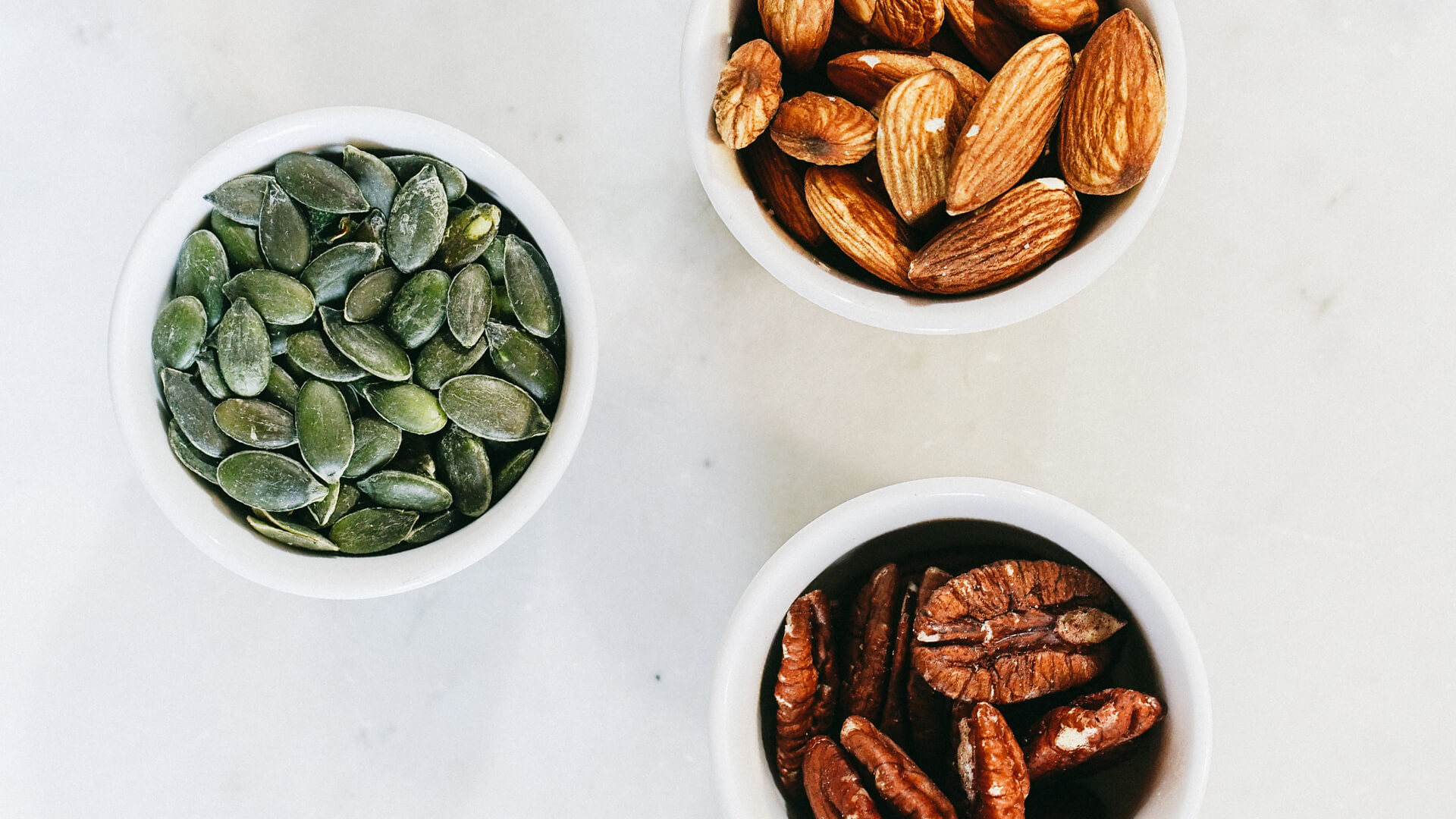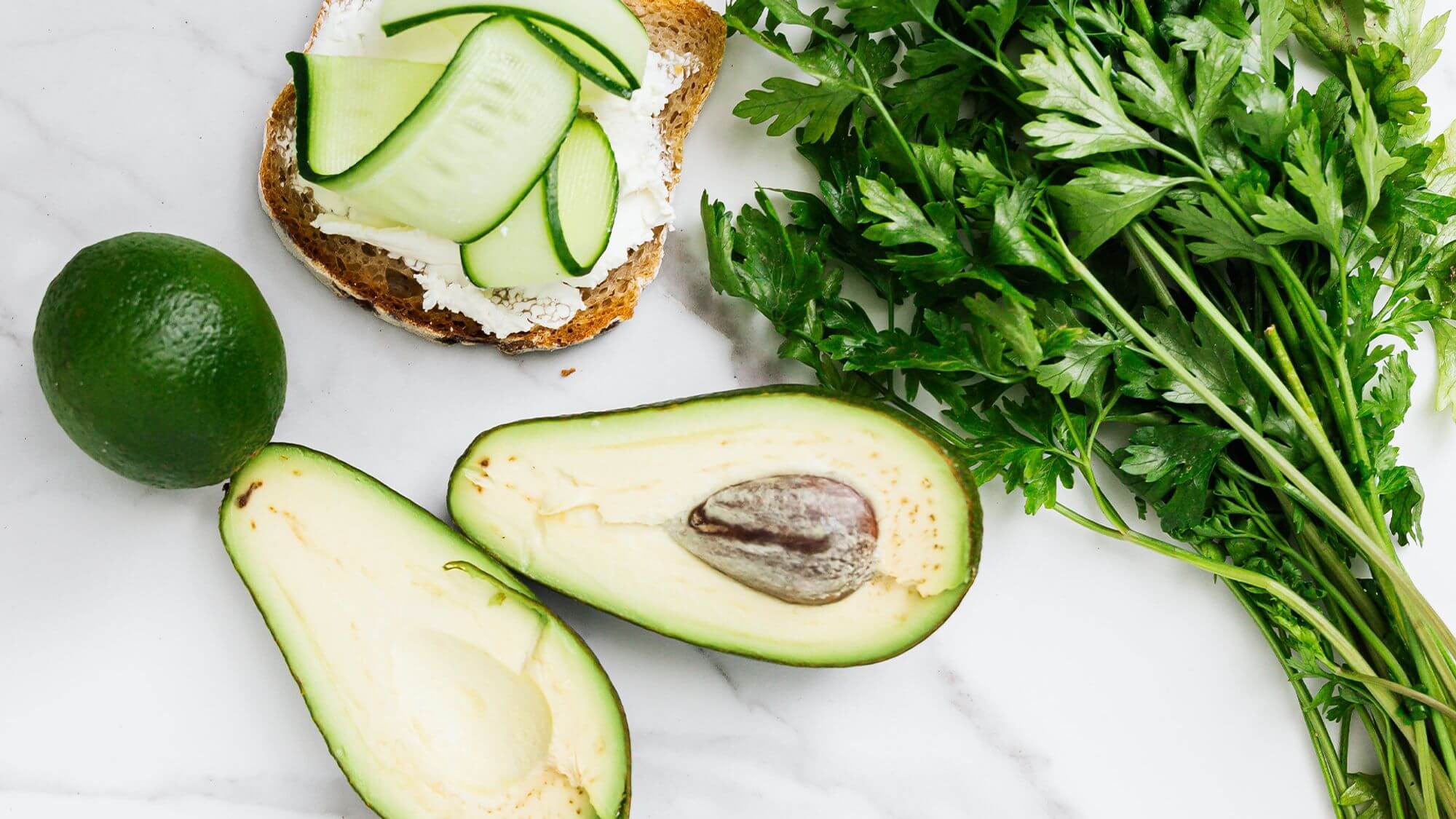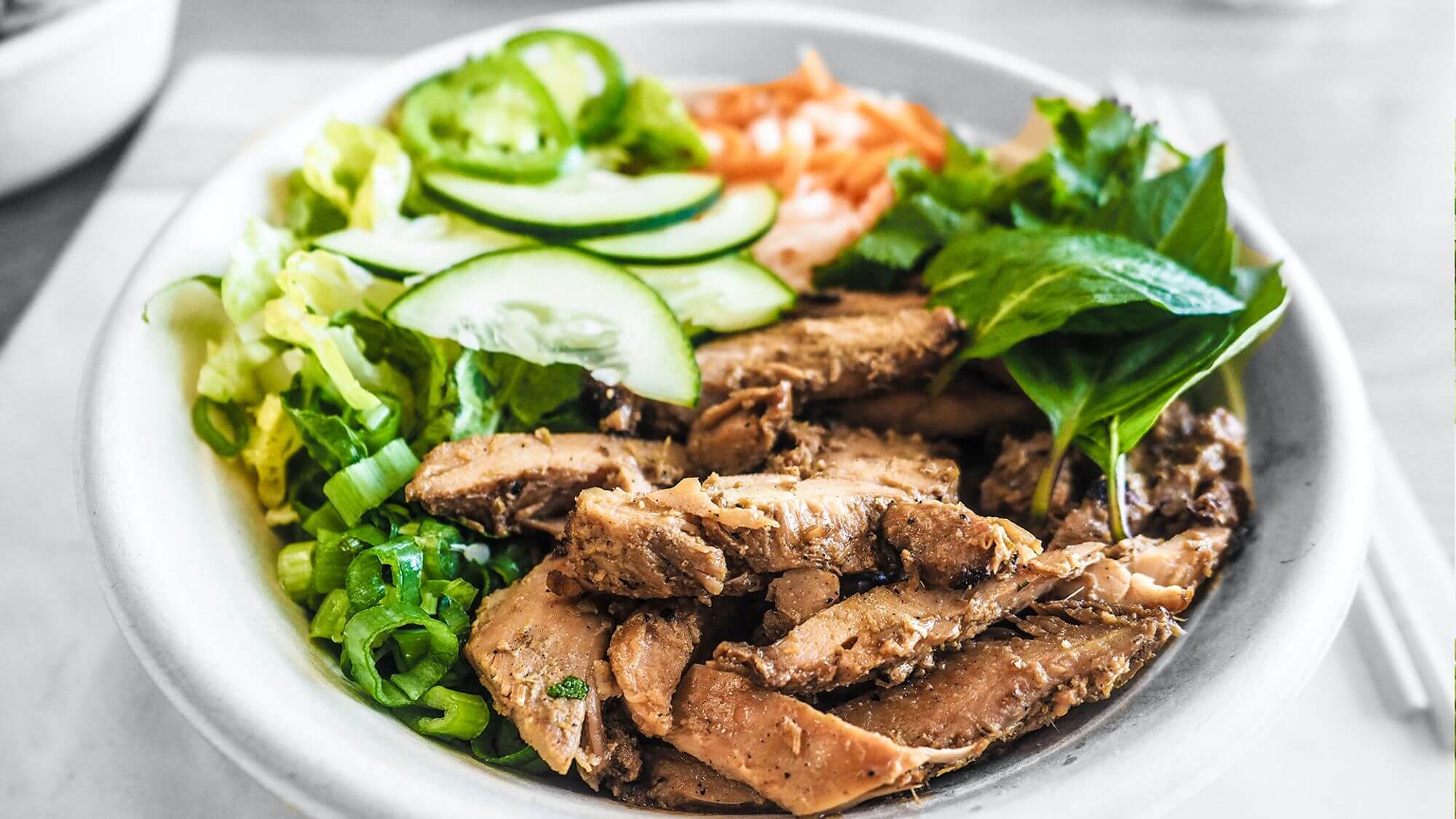Your gut may be hidden out of sight, but it's working overtime every single day. It's home to trillions of bacteria, and when things fall out of balance, your body feels it—bloated belly, sluggish digestion, acid reflux, the lot. 58% of people in the UK report gut health problems, with 43% suffering from digestive discomfort.
Food has a big say in how your gut feels day to day. Some ingredients can quietly disrupt the balance in your digestive system, leaving you bloated, sluggish, or uncomfortable without always knowing why. These may be early signs of an unhealthy gut, even if you don’t immediately associate them with digestion.
But what exactly should you look out for and cut down on? In the article below, we explore the worst foods for gut health, how they affect your microbiome and simple swaps to support your digestive system in the long-term.
Why gut health matters
Your gut is home to trillions of bacteria, fungi, and other microbes, known together as the gut microbiome. It’s a complex ecosystem that helps break down food and plays a major role in everything from immune function and nutrient absorption to inflammation and mood regulation.
A healthy gut keeps everything ticking along as it should. Digestion feels easier, energy levels stay steady, and your body is better equipped to deal with bugs and everyday stress.
But when the balance of bacteria gets thrown off, it can cause an undesired ripple effect. Bloating, gas, constipation and fatigue are common signs, but poor gut health can also lead to ongoing inflammation, lower immunity, and dips in mood and energy.
The gut and brain are closely linked through the gut-brain axis, meaning your gut health can directly impact how you feel emotionally. And when the gut isn’t absorbing nutrients properly, it can leave you feeling drained and more run-down in general.
What kills healthy gut bacteria?
Your gut microbiome is surprisingly sensitive, with everything from what you eat to how you sleep affecting the balance of good and bad bacteria. When that balance tips in the wrong direction, you might notice it through bloating, sluggish digestion, low energy, or frequent colds.
Common gut disruptors include a lack of fibre and variety in your diet, long-term stress, too much alcohol, smoking and poor sleep. Even antibiotics, while often essential, can wipe out beneficial bacteria, sometimes for months or years at a time.
Let’s take a look at the worst foods for gut health and how they might be doing more harm than you realise.
 Frive’s meals are made fresh by chefs and include absolutely no Ultra Processed Ingredients. Find out more.
Frive’s meals are made fresh by chefs and include absolutely no Ultra Processed Ingredients. Find out more.
The 6 worst foods for gut health
Certain foods might seem harmless, but they can stir up all sorts of trouble in your gut. Over time, they mess with the balance of bacteria, slow down digestion and leave you feeling anything but your best.
1. Ultra-processed foods
Ultra-processed foods are full of preservatives, artificial flavourings, emulsifiers and stabilisers—many of which have been linked to gut dysbiosis (an imbalance in gut bacteria). Consuming UPFs regularly can reduce microbial diversity and weaken your gut lining, increasing the risk of inflammation and digestive discomfort.
Swapping out packaged snacks, microwave meals and ready-made sauces for fresh, whole foods is one of the best things you can do for your gut health.
2. Added sugar
Too much added sugar can feed harmful bacteria and yeast in the gut, allowing them to outnumber the beneficial microbes. An imbalance in your gut can trigger inflammation, disrupt digestion, and affect your mood since the gut and brain are so closely connected. Diets high in sugar have also been shown to reduce the diversity of gut bacteria, which is a key sign of a healthy microbiome.
Try cutting back on sugary drinks, flavoured yoghurts and sweetened cereals, and opt for natural sugars from whole fruits instead.
3. Artificial sweeteners
They might seem like a healthier alternative to sugar, but many artificial sweeteners, especially aspartame, saccharin and sucralose, can interfere with gut bacteria. Studies suggest they may reduce beneficial bacteria and impair blood sugar regulation, particularly when consumed regularly.
Natural alternatives like stevia or small amounts of honey or maple syrup may be gentler on the gut, though moderation is still key.
4. Fried and high-fat processed foods
There's no denying that crispy, golden, deep-fried food tastes amazing, but when you regularly overindulge, your gut often pays the price. Foods that are fried or loaded with saturated fat can slow everything down in your digestive system, leaving you feeling heavy, bloated, or uncomfortable.
These meals tend to fuel the wrong kinds of gut bacteria, specifically bile-tolerant strains linked to inflammation, while crowding out the good guys your body needs. Over time, a diet high in fried and fatty foods can weaken your gut lining, disrupt your microbiome and make issues like acid reflux and IBS symptoms worse. Swapping in grilled or oven-baked versions and adding healthier fats like avocado, olive oil, and nuts can be much gentler for your gut.
5. Red and processed meats
While the occasional steak won't destroy your microbiome, frequent consumption of red and processed meats has been linked to gut inflammation and changes in bacterial diversity. Often used in processed meats, nitrates and preservatives are potentially cancer-causing compounds that can become carcinogenic when they interact with other ingredients.
If you're cutting back, try replacing some red meat meals with plant-based proteins, fish, or legumes or choose organic, grass-fed and regeneratively farmed red meat instead.
6. Low-fibre refined carbohydrates
White bread, pasta, white rice and other refined carbs break down quickly in the body, offering very little fuel for your gut microbes. Without fibre to feed them, beneficial bacteria struggle to thrive, reducing microbial diversity and sluggish digestion over time.
Choosing whole grains like brown rice, oats, quinoa, and wholemeal bread gives your gut the fibre it needs to support a healthier, more diverse microbiome—something refined carbs just can't offer.
 Save up to 7 hours each week with Frive’s meal prep delivery service. Just heat and eat. It’s really that simple.
Find out more
Save up to 7 hours each week with Frive’s meal prep delivery service. Just heat and eat. It’s really that simple.
Find out more
What to eat instead: gut-friendly swaps
The food you eat directly impacts your gut's health, but making smarter choices doesn't mean you have to overhaul your entire diet. By swapping out common triggers for more nourishing alternatives, you can support a more balanced microbiome and feel better day to day.
Note: If your symptoms persist or you want to give your digestive system a reset, a three-day gut cleanse can help restore balance and support microbial diversity.
Instead of ultra-processed foods, try whole, minimally processed meals
Choose foods with short ingredient lists and no additives where possible. Meals made with whole vegetables (like broccoli), lean proteins, legumes and grains provide your gut with real nourishment and diversity. Frive's ready-to-eat meals are made fresh, with no ultra-processed ingredients—just real, fresh food, cooked well.
One Frive customer shared:
“The meals from Frive not only taste great but are so much healthier than ready meals from supermarkets. I feel much better, I'm eating better, and it really helped my gut with all the issues I have.”
Instead of added sugar, go for natural sources of sweetness
Satisfy sweet cravings with fruit, cinnamon, or small amounts of honey or maple syrup. Dates and bananas are great for naturally sweet baking. These swaps still taste good but won’t send your gut bacteria into meltdown.
Instead of artificial sweeteners, choose naturally sweet options in moderation
If you're cutting back on sugar, try using stevia or monk fruit in small amounts. Plain Greek yoghurt with fruit is a great swap for ultra-processed, sweetened yoghurts, and herbal teas can help replace sugary or artificially sweetened drinks.
Instead of fried and high-fat processed foods, cook with healthy fats
Roasting, grilling, or air-frying are gentler on your digestion than deep-frying. Try cooking with olive oil instead of butter, and reach for healthy fats from avocado, seeds, oily fish and nuts to support gut-friendly bacteria.
Instead of red and processed meats, add more plant-based protein
Try lentils, chickpeas, tofu, or fish in place of regular red meat. These options are easier on your gut and come packed with fibre, omega-3s and anti-inflammatory benefits.
Instead of low-fibre refined carbs, switch to whole grains
Go for brown rice, wholemeal pasta, quinoa and oats that feed your gut bacteria and help keep your digestion regular, thanks to their fibre and resistant starch content.
What is the worst food for gut health?
When it comes to gut health, ultra-processed foods top the list of offenders. Packed with additives, low in fibre, and often loaded with sugar or unhealthy fats, they can disrupt your microbiome, slow digestion, and leave you feeling anything but your best. Added sugars, artificial sweeteners, and high-fat fried foods are closely followed, all of which feed the wrong kinds of bacteria and make it harder for the good ones to thrive.
The good news is that every food choice is an opportunity to support your gut. Simple swaps like choosing whole grains over refined carbs or adding more fibre-rich veg to your meals can make a real difference over time.
Looking for a simpler way to support your gut without overthinking every meal? Frive’s gut-friendly plans are packed with whole ingredients, rich in fibre, and free from ultra-processed extras. Whether you’re looking for high-protein options, vegetarian, vegan, or dairy-free options, we have you covered. Explore our gut-friendly meal plans and feel the difference for yourself.
Want to support a healthier microbiome? These top foods for gut health can make a real difference in how you feel, eat, and digest.For a limited time, try Frive at a discounted rate today!
FAQs
What are the six worst foods for gut health?
The six worst foods for gut health are ultra-processed foods, added sugar, artificial sweeteners, fried and high-fat processed foods, red and processed meats and low-fibre refined carbohydrates. They can disrupt the balance of your gut bacteria, making it harder for the helpful ones to thrive, and may even set off inflammation in the body. Eating them regularly may also contribute to digestive symptoms like bloating, constipation, or acid reflux.
Are eggs OK for the gut?
Eggs are generally considered gut-friendly for most people because they're easy to digest and a great source of protein, vitamins and minerals, and they're easy to digest. While eggs don't contain fibre (which feeds gut bacteria), they don't harm the microbiome either. For those with sensitivities or specific conditions like IBS, it's best to monitor how eggs affect you individually.
What is the best food to heal your gut?
There isn’t one single magic food, but some of the best foods to support gut healing include fermented options like yoghurt, kefir, sauerkraut and kimchi, as well as high-fibre foods like oats, lentils, bananas and leafy greens. High-fibre foods like oats, lentils, bananas and leafy greens are good options as well, feeding the beneficial bacteria that support regular digestion and a healthy gut lining.
What can I eat instead of chicken for better gut health?
Looking for chicken substitutes? Tofu, tempeh, and legumes are excellent gut-friendly options packed with fibre, protein, and nutrients—perfect for reducing inflammation while diversifying your diet.
What can I use instead of cream in pasta if I have gut issues?
Many people with gut sensitivity struggle with rich, creamy sauces. Try heavy cream pasta substitutes like oat cream, coconut milk, or blended cashews for a gentler but satisfying alternative.
What can I eat if I can't digest dairy like parmesan?
Dairy isn’t always gut-friendly, especially aged cheeses like Parmesan. Try these parmesan substitutes such as nutritional yeast, vegan parmesan, or aged sheep cheeses, which may be easier on your stomach.



